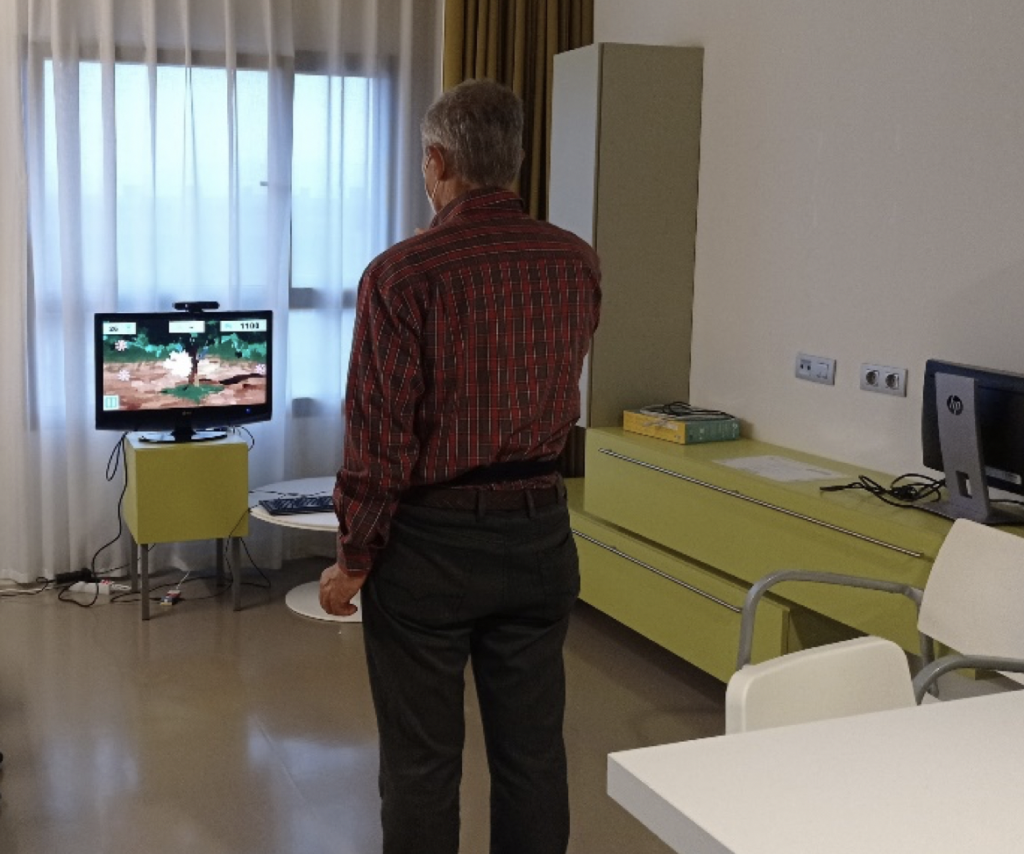First impressions of vCare: the reactions of a man living with Parkinson disease
When were you diagnosed with Parkinson’s disease?

My name is Alvaro and I live in the Basque country in Spain and was diagnosed in March 2019. I started noticing some symptoms long before the diagnosis, 4 or 5 years before. I was a taxi driver, and – between trips – I had to wait a long time, so I started going for a walk while I waited. I started noticing that I did not have a good rhythm when walking, and that many people walked faster than me, even the children. I felt insecure walking. I also noticed that, when I was walking, my right arm did not move. Sometimes I noticed that I was forgetting things. For example, in the taxi, I could not remember the address that the clients had told me. At first, I did not pay attention to these symptoms as I associated them with the fatigue and stress due to working intensively for many hours at an end. But after some time, I decided to consult my doctor. When I was referred to a neurologist, he did what is called a motor examination, and as a result he clearly told me that I had Parkinson’s disease. He referred me to the Hospital de Cruces in Bilbao where they do many clinical trials, and where I am very well taken care of. I have an appointment with the neurologist every 6 months.
How is the condition affecting your life?
My wife already suspected my diagnosis with Parkinson’s because her father also had this disease. The words “Parkinson’s disease” scared me since I had previously seen the deterioration in the health of my father-in-law. The diagnosis was a shock but at the same time a relief because it helped me to understand why I had all these symptoms. I have been dealing with the gradual changes in the disease. I needed time. I stopped working, but I still otherwise do the same things that I did before. I keep going out for walks and I keep doing the things that I like.
What do you think of the vCare Project?
The concept of comprehensive rehabilitation and monitoring daily life at home, offered by vCare, seems like a very good option. The idea seems very good to me, very innovative. It is complementary to the service offered by Osakidetza (the regional public health system in the Basque Country).
Have you previously done rehabilitation or participated in a project with rehabilitation?
No, I have never done any form of motor or cognitive rehabilitation before.
What was your experience of the motor and cognitive rehabilitation exercises?
I find the exercises very entertaining, very funny. I want to continue playing the games to improve. These activities are very entertaining, and – with practice – they become easier and easier for me. It’s easy to do them smoothly. I only tried these games for 4 days, and I already noticed that I was more agile and my mind was more alert as well.
Was it easy to get familiar with the devices?
At first, it was a bit difficult for me to deal with so much technology, everything was new and there was much information. But on the first day of use, you took all the time needed to explain to me how the devices work and, in the end, it was easy to understand. The system is very intuitive.
What do you think of the sensors, the sensors of presence and movement?
I think they’re a very interesting idea. I have not been able to test them very much, so I don’t know yet how they can work. But anything to help us, and to improve my quality of life and support my family, is more than welcome.
Have you felt that you have been able to handle yourself well and could be independent with vCare technology at home?
Yes, I think it is easy to foresee that. I think I could be independent when using the devices without a team to support me.
In addition to rehabilitation, the vCare project includes other types of support, which provide a more complete follow-up of the disease and which complements the neurologist. What do you think of the idea?
I like the idea of having a more thorough observation of my daily evolution and challenges. The idea to include rehabilitation in people’s everyday life is a very good one.
Would you like us to install the vCare devices in your home to be able to access the vCare services more constantly?
Yes, of course, I would like to install it at home. I believe it can help to face the many hurdles that develop in the evolution of the disease.
If, after we install the vCare devices in your home, we see that there is an improvement in motor and cognitive performance, would you like the possibility to include vCare in the public health system and offer it to more patients?
Yes, I think it would be a very good idea to have this type of service proposed to all the people who are affected by Parkinson’s.
